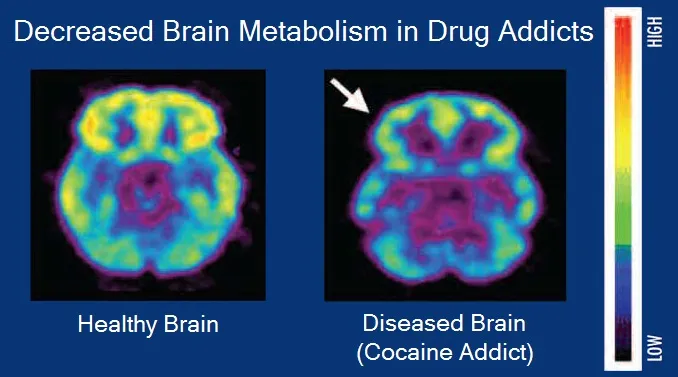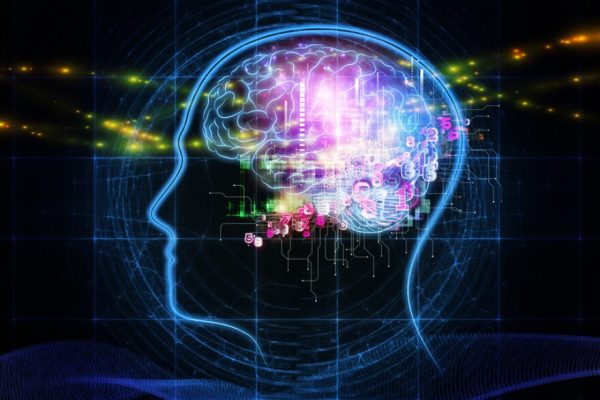The brain is a complex system that can be affected by a variety of outside factors. Substance abuse is one of them.
Addictive substances can lead to a cycle of short-term euphoria followed by long-lasting negative effects.
Addiction begins with the search for easy pleasure without understanding the consequences. By the time a person realizes that something is wrong with their brain, they are already addicted. Recovering from this type of addiction requires a diligent approach to physical and psychological treatment.
Since brain chemistry is involved, the goal is to get the brain’s operation back to normal without experiencing negative physical and mental consequences.
In the United States, over 19 million adults are struggling with a substance abuse disorder. Only around 10% of them seek professional help.
Let’s take a closer look at the way substance addiction affects brain chemistry.
How Does Your Brain Work?
To understand the effects of substance addiction, you need to dig deeper into the basic functioning of the brain. The brain consists of billions of nerve cells called neurons. They communicate through chemical messengers known as neurotransmitters. These neurotransmitters relay signals between neurons. These signals arrange the transition of information throughout the brain and the body.
Essentially, your brain is a large computer. It processes signals that it receives from your body and the environment around it and sends messages back to the body. Different signals control different internal processes. If these signals are disrupted or the brain can’t analyze them properly, you can experience changes in thoughts, emotions, and behavior.
What is Substance Addiction?
Substance addiction is a chronic disorder that involves the compulsive use of drugs or alcohol. When a person is addicted to drugs, they often lose control of their emotions while experiencing health problems.
Drug addiction involves both physical and psychological dependence on substances. Physical dependence occurs when the body adapts to the presence of a drug and requires it to function normally.
When the person stops using the drug, they start experiencing withdrawal. The physical and emotional discomfort that accompanies withdrawal causes the person to resume taking the drug.
Psychological dependence, on the other hand, refers to the emotional and mental reliance on drugs to cope with stress, emotions, or pain. The person gets used to the short-term relief of physical and emotional discomfort. When they stop using the drug, the problem returns in full force.
How Addictive Substances Affect Brain Chemistry
The use of drugs disrupts the intricate process of neuronal communication. When drugs enter the body, they affect how neurons send, receive, and process signals through neurotransmitters.
Certain drugs, like marijuana and heroin, have a chemical structure that is similar to the structure of natural neurotransmitters in the body. This resemblance allows these drugs to activate neurons. However, while these drugs mimic the brain’s own chemicals, they do not activate neurons the same way natural neurotransmitters do. As a result, abnormal messages are sent through the neural network. This leads to disruptions in normal brain function.
Other drugs such as amphetamine or cocaine can have different effects on neuronal communication. These drugs can cause neurons to release excessive amounts of natural neurotransmitters. Alternatively, they can interfere with the normal recycling process of these brain chemicals. The disruption hurts the regular communication between neurons. This contributes to the negative impact on brain function.
One neurotransmitter that plays a significant role in addiction is dopamine. Dopamine is associated with the brain’s reward system, which reinforces pleasurable experiences and motivates us to repeat them. Addictive substances can trigger a surge of dopamine. This leads to intense feelings of pleasure. The brain remembers the pleasurable sensation and wants to repeat it. Accordingly, it stimulates the need to continue drug abuse.
How Drug Use Changes Your Brain Over Time
Continuous drug use can lead to significant changes in the brain’s structure and function. As the brain gets used to the presence of addictive substances, it adapts by reducing the number of dopamine receptors or altering their sensitivity.
This reduces the person’s ability to experience pleasure from natural rewards, such as food or love. Meanwhile, it encourages a higher dependence on the substance in order to maintain dopamine levels. When the brain’s reward system becomes disrupted, the person loses control over drug use almost entirely.
Opioid addiction is one of the biggest problems that the United States has to deal with. Today, it reaches epidemic levels, affecting at least three million citizens. Opioids have especially strong effects on the brain, including:
- Changes to the white matter tracts that lead to antisocial behavior and aggression
- Structural changes in the brain
- Impaired information processing
An opioid overdose can lead to hypoxia (suffocating) of the brain cells. This can lead to brain injury that causes confusion, behavioral changes, paralysis, incontinence, and many other problems.
Can the Brain Recover After a Substance Addiction?
The brain has a remarkable capacity for recovery and adaptation. Once the person stops using addictive substances, the brain gradually begins restoring its balance and functionality.
However, the extent of recovery may vary depending on factors such as:
- The duration and intensity of substance use
- Individual differences
- Presence of co-occurring mental health conditions
Drug abuse is often a comorbidity of a mental health condition, Around 9.2 million American adults have a co-occurring disorder. Which means they have a drug abuse disorder and a mental health disorder at the same time.
The treatment for co-occurring disorders has to be simultaneous. Otherwise, it’s not likely to yield the desired results. For example, ibogaine treatment for addiction should be combined with group support or individual sessions with a psychiatrist.
Once the drug stops affecting brain cells, they will begin their road to recovery. However, brain hypoxia during an overdose could lead to some long-lasting damage.
How Long Does It Take For The Brain To Recover from Substance Addiction?
The process of brain recovery after substance addiction is gradual. During recovery, the brain undergoes various changes to restore its normal activities.
Neuroplasticity, the brain’s ability to reorganize and form new connections, plays a crucial role in this process. Over time, dopamine receptors begin to normalize. Meanwhile, the brain’s reward system can regain its sensitivity to natural rewards.
The time it takes to recover depends on different factors, including:
- Individual characteristics
- Treatment tactics
- The substance abused
- Overall statute of health
- Nature of damage
- History of drug abuse
One study that looked at meth abusers demonstrated that it can take around 14 months for the brain to return back to normal after stopping drug use.
Overall, substance addiction can have a significant impact on brain chemistry. By disrupting the way a brain works, drugs and alcohol can change the way a person feels and behaves. This causes the person to crave drugs to relieve the condition and turns drug use into a vicious cycle.
Breaking this cycle is only possible with professional assistance. Thankfully, many options are currently available to help people fight substance abuse disorders.





